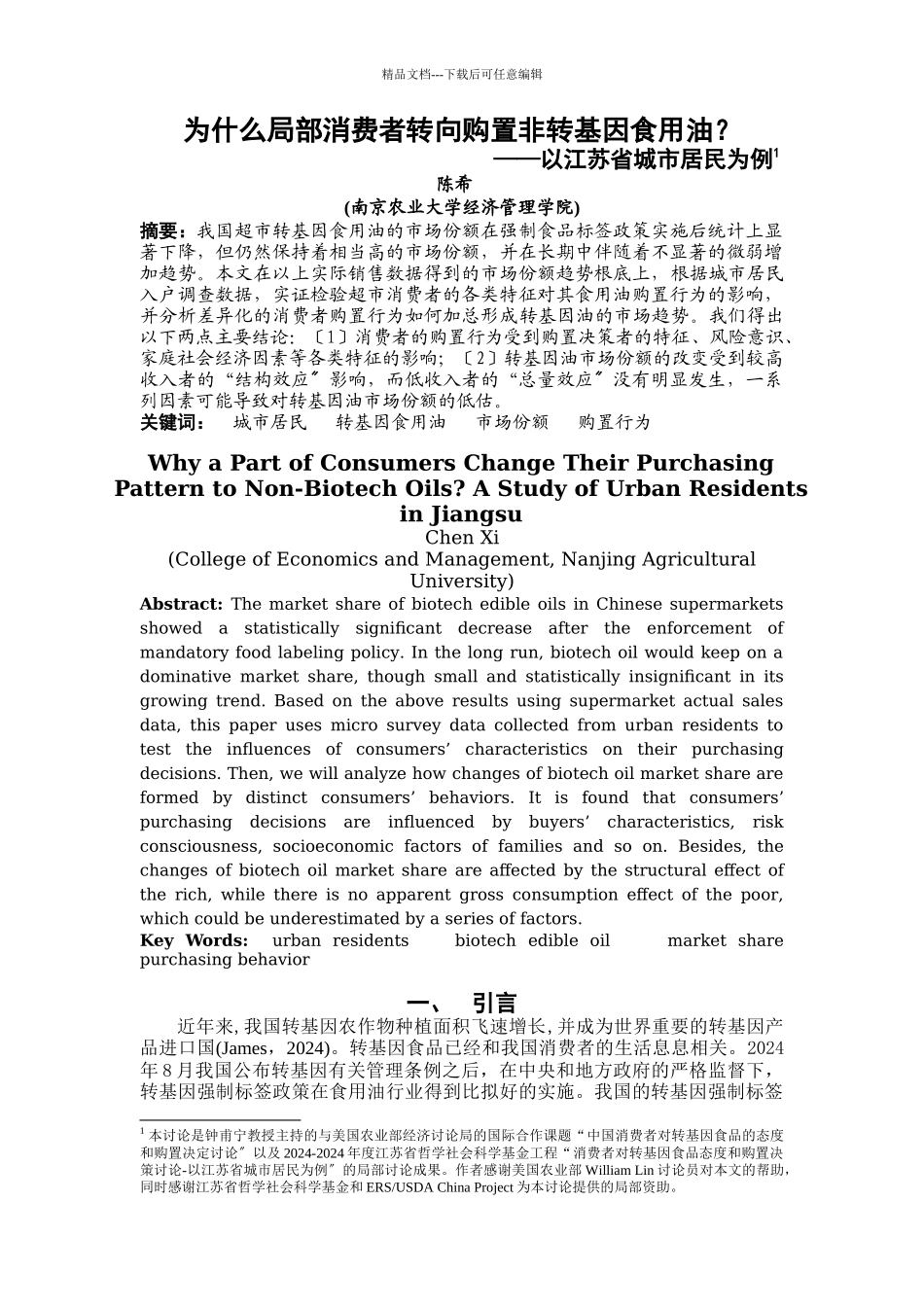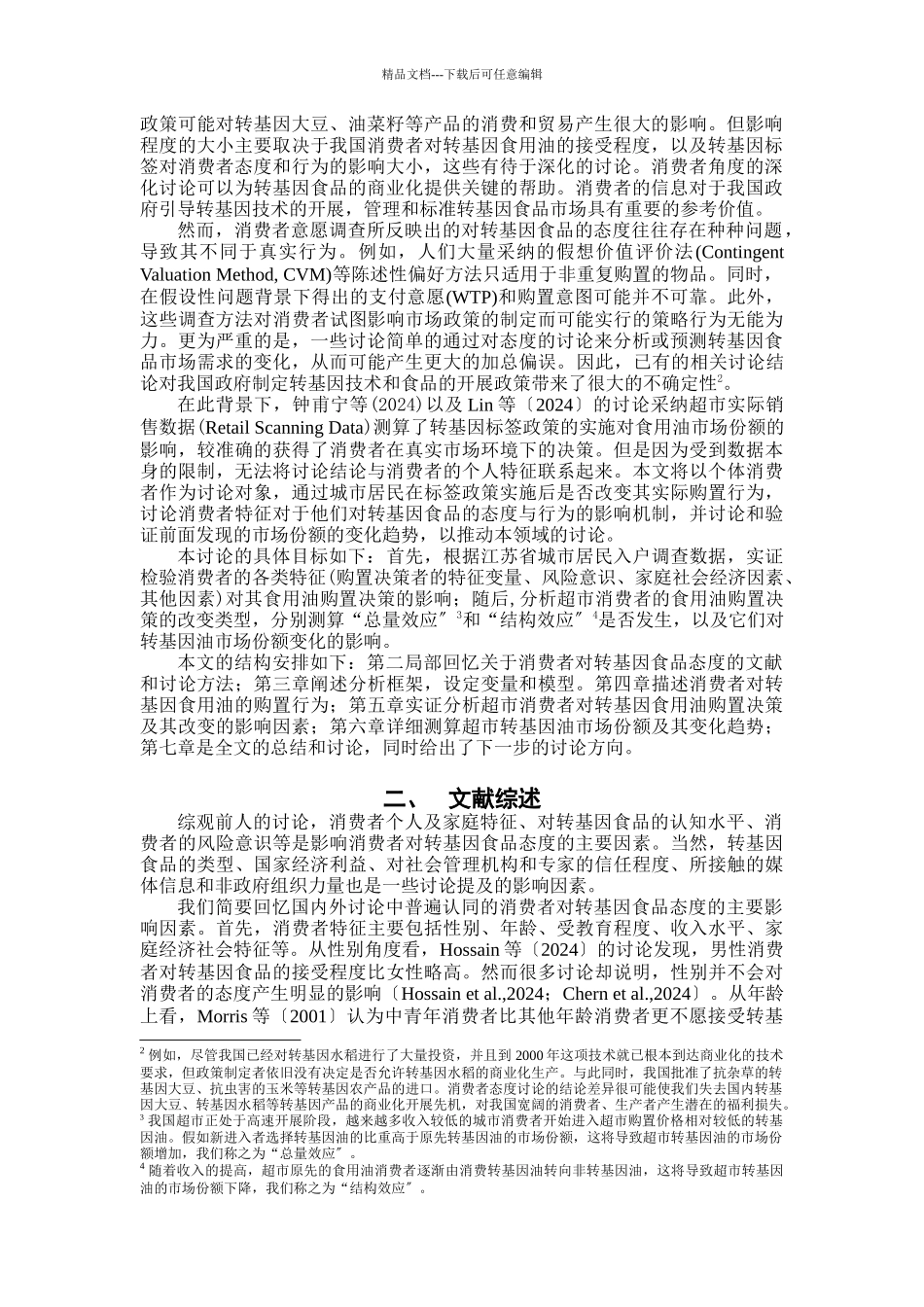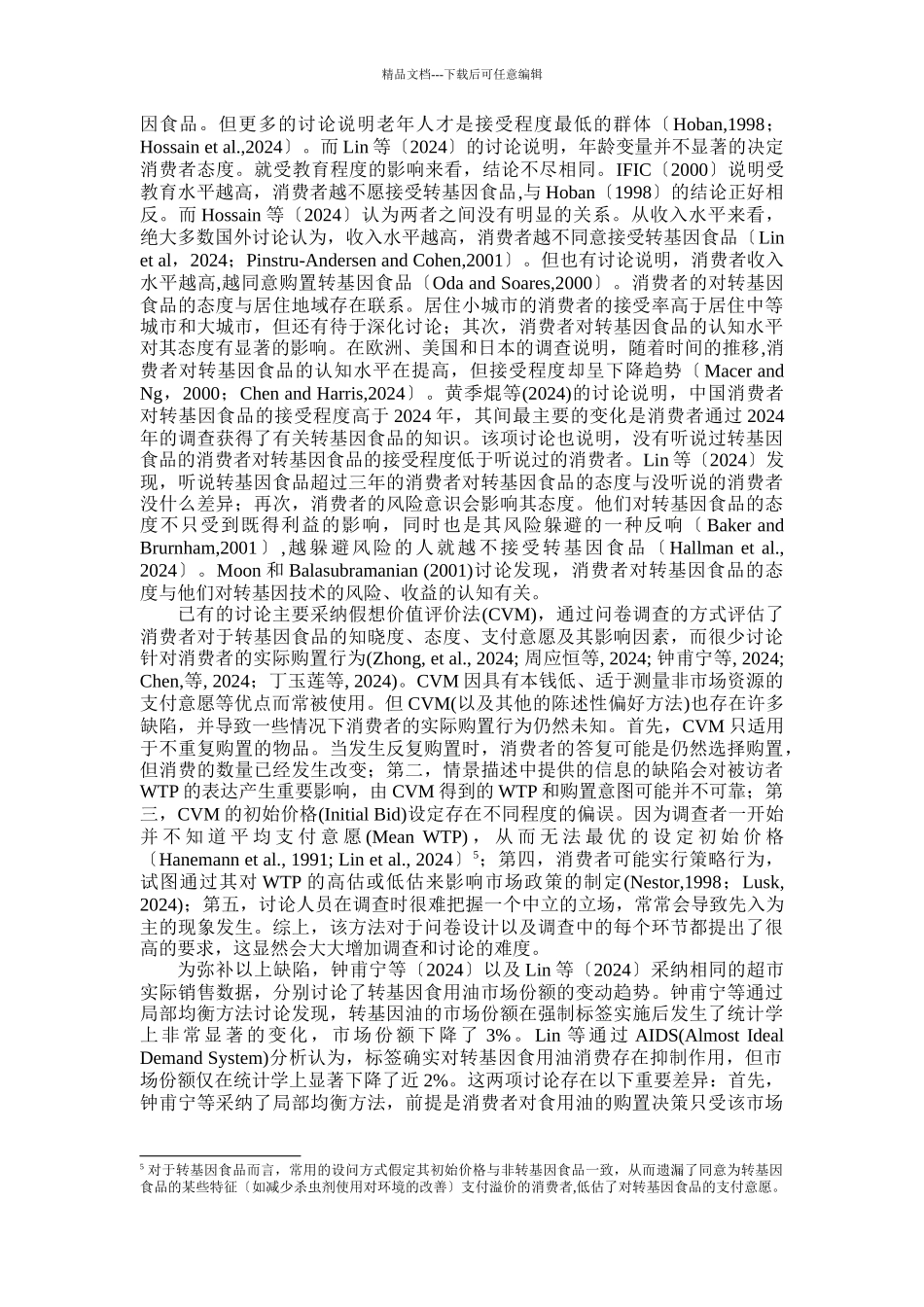精品文档---下载后可任意编辑为什么局部消费者转向购置非转基因食用油? ——以江苏省城市居民为例1陈希(南京农业大学经济管理学院)摘要:我国超市转基因食用油的市场份额在强制食品标签政策实施后统计上显著下降,但仍然保持着相当高的市场份额,并在长期中伴随着不显著的微弱增加趋势。本文在以上实际销售数据得到的市场份额趋势根底上,根据城市居民入户调查数据,实证检验超市消费者的各类特征对其食用油购置行为的影响,并分析差异化的消费者购置行为如何加总形成转基因油的市场趋势。我们得出以下两点主要结论:〔1〕消费者的购置行为受到购置决策者的特征、风险意识、家庭社会经济因素等各类特征的影响;〔2〕转基因油市场份额的改变受到较高收入者的“结构效应影响,而低收入者的“总量效应没有明显发生,一系〞〞列因素可能导致对转基因油市场份额的低估。关键词: 城市居民 转基因食用油 市场份额 购置行为Why a Part of Consumers Change Their Purchasing Pattern to Non-Biotech Oils? A Study of Urban Residents in JiangsuChen Xi(College of Economics and Management, Nanjing Agricultural University)Abstract: The market share of biotech edible oils in Chinese supermarkets showed a statistically significant decrease after the enforcement of mandatory food labeling policy. In the long run, biotech oil would keep on a dominative market share, though small and statistically insignificant in its growing trend. Based on the above results using supermarket actual sales data, this paper uses micro survey data collected from urban residents to test the influences of consumers’ characteristics on their purchasing decisions. Then, we will analyze how changes of biotech oil market share are formed by distinct consumers’ behaviors. It is found that consumers’ purchasing decisions are influenced by buyers’ characteristics, risk consciousness, socioeconomic factors of families and so on. Besides, the changes of biotech oil market share are affected by the structural effect of the...


